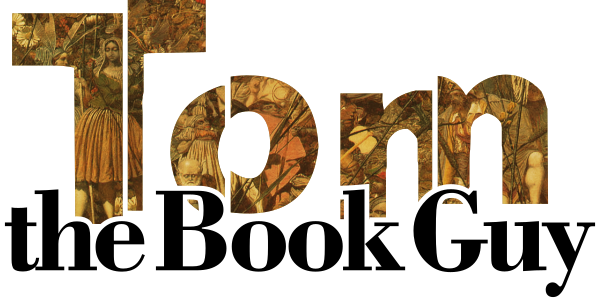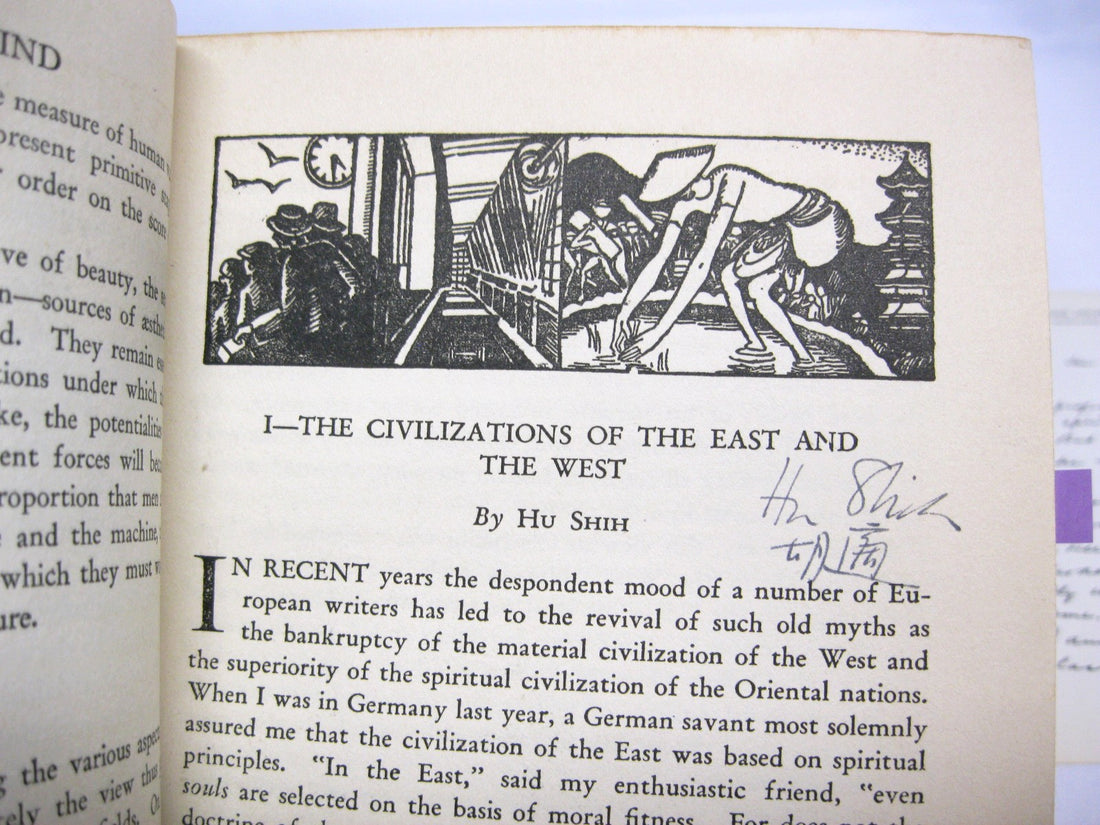I am restarting a semi-regular feature I had in our old blog, and I might revisit a few of those, but considering the wealth of interesting books that have recently been coming in... I've already got the next year's worth of Strangest Books of the Week. The only guidelines is that it is a book that has come through the office.
What makes a book "strange"? Synonyms in this case are peculiar, fascinating, unique and/or unexpected. It could be any number of things and it can very much be in the eye of the beholder. The strange books that I like and plan to feature are not necessarily valuable. They may just be old and really outdated in a funny way, or it might be a particularly esoteric and goofy conspiracy theory. Years ago we had a collection of incredibly straight-faced books about Bigfoot. Those were fantastic! Mid-century Jell-O cookbooks are some kinda wonderful, too. There's a wide range of "strange" books...
I especially like the books that have some character and some story behind them. Some books are just peculiar, other books are unique through their provenance. The following is very much the latter:
Whither Mankind, a Panorama of Modern Civilization edited by Charles A. Beard, first edition 1928.
This copy includes a handwritten letter (always a pleasure to see) from Charles Beard and is signed within by two contributors: Dr. Hu Shih, and John Dewey who was Dr. Hu's mentor. The letter from Beard is addressed to "Canby": Henry Stanley Canby, at the time the head of the Book-of-the-Month Club, and three booklets about this book are included from the BOMC, heavily quoting Dr Canby about the work, and two of these are signed by him.

According to a penciled note on the front inside cover, the few "corrects" and markings within the book were made by Hu Shih, and that he was the one who got John Dewey to sign it when he went to Dewey's apartment for dinner one night.
As a bookdealer, it's impossible to know everything, right, so in cases like this some amount of research has to be done. And this is certainly not my particular area of expertise! The history of political ideologies, like the history of religious ideologies, always twists my head into unhead-like shapes. There's always just too many strong opinions about intense but extremely complex issues, and events and people to keep straight, even in American politics. But China? I don't feel I can begin to pretend that I could have an appreciation for the sweep of China's political history during the 20th century without some extended research.
Dr Hu Shih is, I think I can confidently say now, a fairly important figure in the intellectual history of modern China. Rather than try to paraphrase wikipedia, I'll just snag a few sections:
Hu Shih (17 December 1891 – 24 February 1962), also known as Hu Suh in early references, was a Chinese diplomat, essayist, literary scholar, philosopher, and politician. Hu is widely recognized today as a key contributor to Chinese liberalism and language reform in his advocacy for the use of written vernacular Chinese. He was influential in the May Fourth Movement, one of the leaders of China's New Culture Movement, was a president of Peking University, and in 1939 was nominated for a Nobel Prize in literature. He had a wide range of interests such as literature, philosophy, history, textual criticism, and pedagogy. He was also an influential redology scholar and held the famous Jiaxu manuscript (甲戌本; Jiǎxū běn) for many years until his death.
Hu became a "national scholar" through funds appropriated from the Boxer Indemnity Scholarship Program. On 16 August 1910, he was sent to study agriculture at Cornell University in the U.S. In 1912 he changed his major to philosophy and literature, and was elected to Phi Beta Kappa. After receiving his undergraduate degree, he went to study philosophy at Teachers College, Columbia University, where he was greatly influenced by his professor, John Dewey. Hu became Dewey's translator and a lifelong advocate of pragmatic evolutionary change, helping Dewey in his 1919–1921 lectures series in China. He returned to lecture in Peking University. During his tenure there, he received support from Chen Duxiu, editor of the influential journal New Youth, quickly gaining much attention and influence. Hu soon became one of the leading and influential intellectuals during the May Fourth Movement and later the New Culture Movement.
Hu was the ambassador of Republic of China to the U.S. between 1938 and 1942. He was recalled in September 1942 and was replaced by Wei Tao-ming. Hu then served as chancellor of Peking University, which was then called National Peking University, between 1946 and 1948. In 1957, he became the third president of the Academia Sinica in Taipei, a post he retained until his death. He was also chief executive of the Free China Journal, which was eventually shut down for criticizing Chiang Kai-shek.
I had heard the name John Dewey before researching the rest, but that was about it. So for me this was a highly speculative book in terms of value. In such cases I thank heaven for auctions, which is also the reason I never got the book listed on this website. Immediately after I listed it three different people wrote in asking if we had a buy-it-now price and before we were able to consider any offers, it got the first bid at $149.98.
The auction ended last night and finished out at $1,526. All three bidders were in China so I can confidently say that the association with Dr. Hu is what carried the interest. Safe to say as well that this book will be going somewhere it's appreciated. These are the moments that keep me humble in this business. This is what makes it fun, too: there's always more to learn and you never know what you might be learning next!





1 comment
How much for this one? Thanks, bin